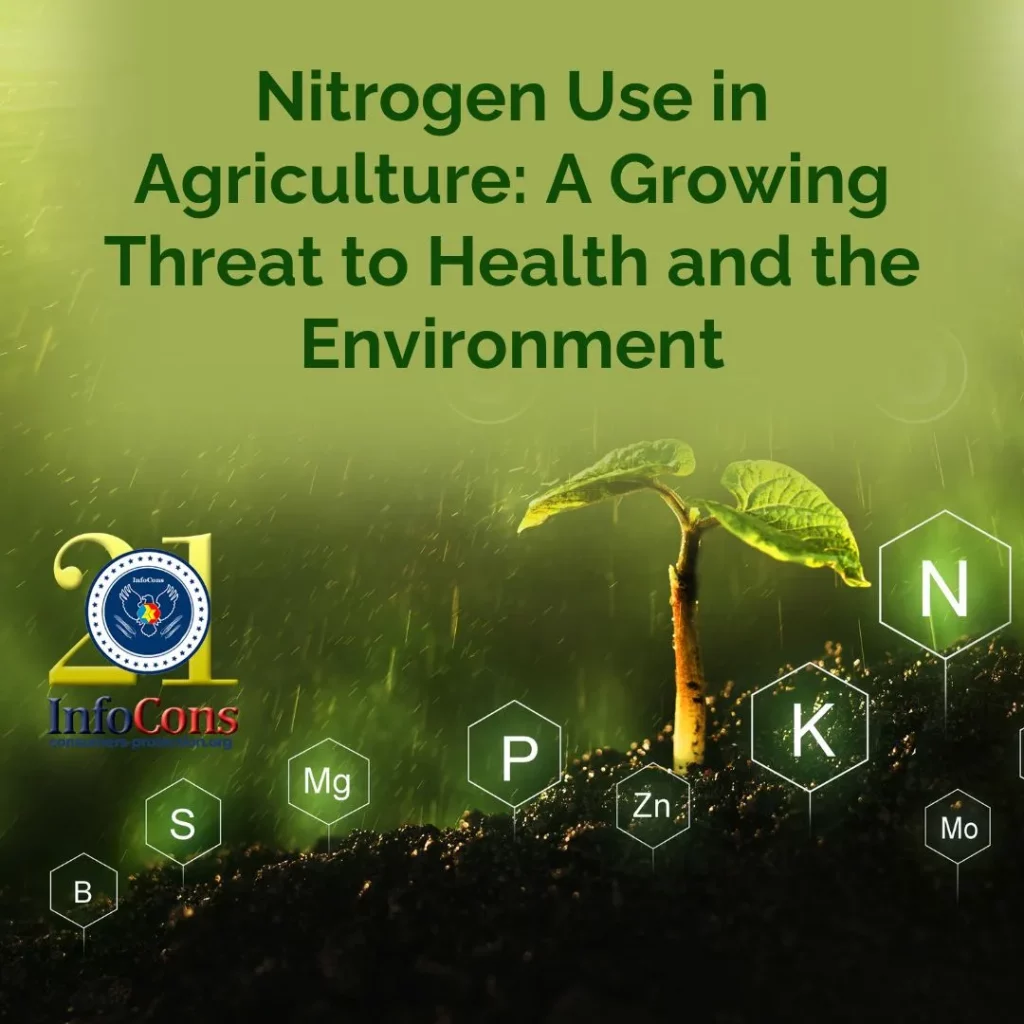
Nitrogen, an essential element for life, plays a critical role in agricultural production and food security. However, the misuse of nitrogen fertilizers is causing significant harm to the environment and public health. As global nitrogen use continues to rise, there is an urgent need to adopt sustainable nitrogen management practices to mitigate its adverse effects. A recent report from the Food and Agriculture Organization (FAO) sheds light on this growing issue and proposes actionable strategies to improve nitrogen use efficiency (NUE).
The Role of Nitrogen in Agriculture and Food Production
Nitrogen is a key component in amino acids and proteins necessary for plant, animal, and human growth. The development of the Haber–Bosch process in the 20th century revolutionized agriculture by enabling the conversion of atmospheric nitrogen into ammonia, which is widely used as fertilizer. This technological breakthrough has supported the growth of the global population by boosting agricultural yields.
Currently, human activities add around 150 teragrams (Tg) of reactive nitrogen to the Earth’s land surface annually, more than double the pre-industrial levels. Projections indicate that this figure could reach 600 Tg per year by 2100 due to climate change, exacerbating nitrogen pollution worldwide.
Read also : Do You Know the Key Goals for Eliminating Cervical Cancer ?
The Environmental and Health Impacts of Nitrogen Pollution
Excessive nitrogen use has far-reaching consequences for both the environment and human health. Nitrogen pollution degrades air, water, and soil quality, contributes to biodiversity loss, and accelerates climate change. Livestock farming, synthetic fertilizers, and land-use changes are the primary drivers of nitrogen emissions, with livestock accounting for nearly one-third of human-caused emissions.
Nitrogen pollution is particularly severe in regions such as North America, Western Europe, and parts of Asia, where fertilizers have been misused for decades. Conversely, in low- and middle-income countries, limited access to fertilizers has resulted in soil nutrient depletion and degradation, threatening agricultural productivity.
From a health perspective, nitrogen pollution increases the risk of respiratory and cardiovascular diseases, highlighting the need for urgent action to address this issue.
Towards Sustainable Nitrogen Management
The FAO emphasizes that adopting sustainable nitrogen management practices is essential to prevent soil degradation, reduce pollution, and mitigate climate change. Improving NUE involves minimizing external inputs, recycling nutrients, and reducing waste. Encouragingly, NUE has seen some progress in recent years, but significant challenges remain.
Read also : Emerging Scam Trends to Watch Out for in 2025
The FAO report highlights several recommendations to enhance NUE:
- Optimizing Fertilizer Use: The fertilizer industry must reduce greenhouse gas emissions during production and minimize wasteful losses during storage and application.
- Promoting Biological Nitrogen Fixation: Governments should advocate for the inclusion of leguminous crops in crop rotations to naturally fix nitrogen from the atmosphere.
- Improving Livestock Practices: Farmers should adopt better manure management practices to reduce nitrogen losses and enhance agricultural productivity.
- Encouraging Organic Fertilizers and Circular Economies: Policies should support the use of organic fertilizers and redistribute livestock to reduce environmental pressures in areas of high concentration.
- Aligning Policies with Global Goals: Governments should integrate sustainable nitrogen management into climate and biodiversity commitments, including measures to reduce nitrous oxide emissions and nitrogen pollution.
- Reducing Food Waste: Efforts to minimize food waste and recycle inedible food for livestock feed should be prioritized.
- Investing in Efficiency: Public and private investments in low-emission fertilizers and the recycling of organic residues can significantly improve system efficiency.
The Path Forward
Achieving sustainable nitrogen management is a global challenge that requires collaboration between governments, industries, and communities. By adopting the FAO’s recommendations, countries can mitigate the environmental and health risks associated with nitrogen misuse while promoting sustainable agriculture.
Moving forward, a balanced approach to nitrogen use can help secure a healthier, more sustainable future for the planet and its inhabitants.
Read also : Europe’s flight trends – 6.7 million flights recorded in 2024
Source : Food and Agriculture Organization (FAO)
InfoCons – European Organization for Consumer Protection and Promotion of Programs and Strategies , a full member of the World Organization Consumers International, founding member of the Federation of Consumer Associations, and member of ANEC .